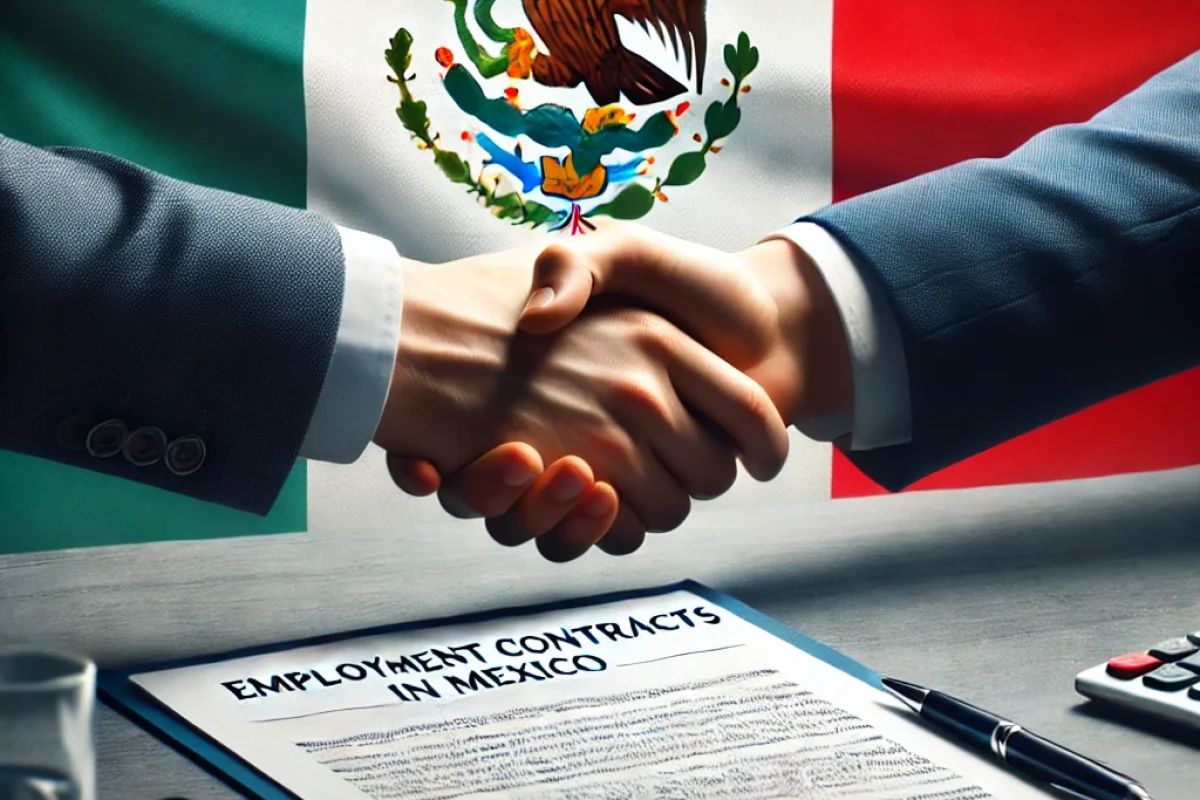Expanding your business into Mexico? Welcome! Before you start hiring, there’s one crucial aspect to focus on—employment contracts. These contracts lay the foundation for a strong employer-employee relationship. Here’s your guide on how to navigate employment contracts in Mexico.
1. When Does the Employment Contract Come into Play in Mexico? 🚀
Once you’ve selected your candidate and made an offer, the next step is issuing a formal employment contract.
Job Offer Acceptance: Once the candidate accepts the offer, their intent to join is confirmed.
Contract Issuance: The contract must be issued before the employee begins work. This document outlines key employment terms and legal obligations.
2. What Should the Contract Include for Employment in Mexico? 📝
To comply with Mexican labor laws, the employment contract must include the following:
Job Title & Responsibilities: Clearly define the employee’s role and responsibilities.
Workplace Location: Specify whether the employee will work onsite, remotely, or in a hybrid arrangement.
Type of Contract: Indicate if the employment is “permanent,” “fixed-term,” or “temporary.”
Working Hours: State the employee’s working hours and days.
3. Compensation: What’s Included in the Salary in Mexico? 💵
Mexican law mandates specific elements for employee compensation. Here’s a typical breakdown:
Component | Amount (MXN) | Description |
|---|---|---|
Base Salary | 240,000 | The annual salary offered to the employee. |
Bonuses | 30,000 | Performance-based incentives. |
Health Insurance | 15,000 | Contribution to the employee’s healthcare plan. |
Vacation Pay | 10,000 | Paid time off and vacation benefits. |
Total | 295,000 | Total yearly cost for the company. |
Key Points:
Base Salary forms the majority of the total compensation.
Bonuses and Insurance must align with Mexican statutory requirements.
4. Leave Policies: What Must Be Provided in Mexico 🚪
Employers in Mexico must offer specific statutory leave, including:
Sick Leave: Paid leave based on illness severity.
Annual Leave: Starting at 6 days of paid vacation after the first year.
Maternity/Paternity Leave: Maternity leave is 12 weeks, and paternity leave is 5 days, both mandatory under law.
5. Termination & Notice Periods: What’s Fair in Mexico? ⚖️
Mexican labor laws require specific procedures for termination:
Notice Period: 15 days for justified termination, with longer periods in certain cases.
Severance Pay: Varies based on the employee’s service duration.
Why This Matters: Clearly defining termination procedures ensures fairness and compliance with legal obligations.
6. Statutory Contributions: What You Need to Know About Mexican Labor Laws 💼
In Mexico, employers must contribute to statutory social security and pension programs:
Social Security: Covers healthcare, disability, and pension.
Housing Fund (INFONAVIT): Contributions are mandatory and help employees finance housing.
Why This Matters: Clear contract terms ensure compliance with tax and statutory obligations, avoiding penalties.
7. Non-Compete & Confidentiality Agreements: Are They Enforceable in Mexico? 🔐
Yes, but they must follow strict guidelines:
Non-Compete Clauses: These may be included but are generally not enforceable unless exceptional circumstances apply.
Confidentiality Agreements: Valid and commonly used to protect proprietary information.
8. Background Checks: Are They Necessary in Mexico? 🏥🔍
Yes, but must comply with Mexican privacy laws:
Types of Checks: Typically include criminal, education, and employment history.
Consent Clause: Must include the employee’s consent for background checks.
9. Why Every Detail Should Be in Writing for Employment in Mexico ✍️
In Mexico, having everything in writing is critical:
Legal Protection: A written contract is mandatory and serves as legal protection for both parties.
Clarity: It reduces misunderstandings and aligns employer and employee expectations.
Why This Matters: Having a detailed, written contract safeguards both parties from legal disputes.
Conclusion: How GlobainePEO Can Help with Employment Contracts in Mexico 🌐
Drafting employment contracts that comply with Mexican labor laws can be complex, but GlobainePEO is here to help. From creating compliant contracts to managing payroll and statutory contributions, we’re ready to support your expansion into Mexico.

